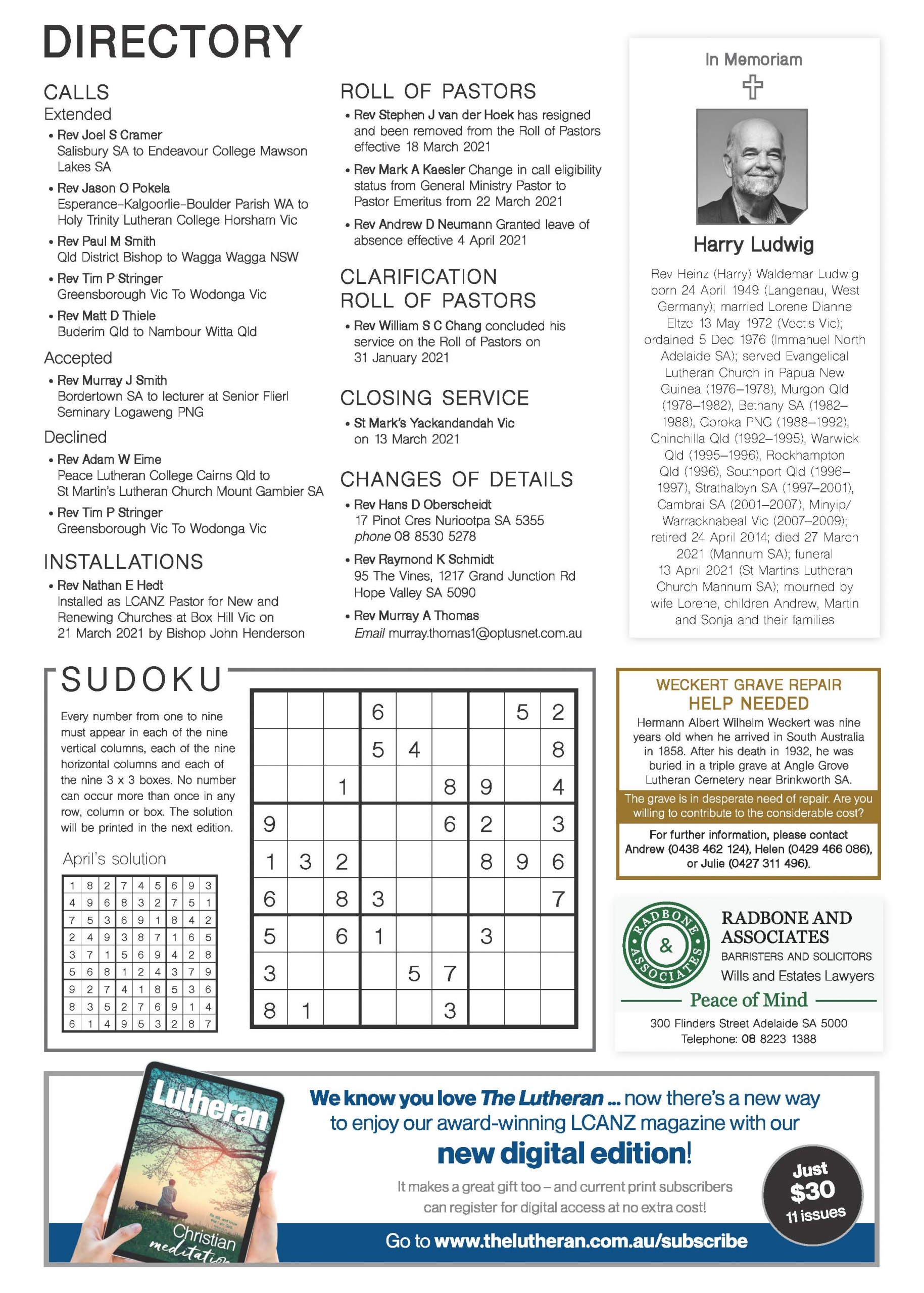Going GREYT! 1 Peter 4:10
In Going GREYT! we feature stories of some of our ‘more experienced’ people within the LCA, who have been called to make a positive contribution in their retirement. We pray their examples of service will be an inspiration and encouragement to us all as we look to be Christ’s hands and feet wherever we are, with whatever gifts and opportunities we’ve been given.
by Helen Beringen
Bringing together the teaching skills of retired teachers with the learning needs of children, many of whom are refugees, has been a match made in heaven for one northern suburbs school in Adelaide.
All it took was a school principal with a big heart, an inspiring online English program helping disadvantaged children, and a team of grannies.
This band of friends from the Bridgewater Lutheran congregation in the Adelaide Hills were retired educators who still had lots of love and learning to share. And share it they have – with 25 refugee students from the Blair Athol North Birth to Year 7 School’s remedial English program.
Over the past year, 73-year-old Gillian (Gill) Stevenson and friends Sheri Paschke, Judi Bell, Betty Lores and Julie Grierson have run weekly intensive English coaching sessions via the internet meeting system Zoom for the students, which also continued through COVID-19 restrictions. ‘It was very much on the cards before COVID struck – what has been an amazing blessing has been the development of the Zoom platform’, Gill explains. This allowed the program to go ahead online!
Teaching is in her blood for Gill, and her husband of 53 years, retired Lutheran Pastor Alex Stevenson, whose first career was in teaching before he was called to the ministry. It is a gift shared by their son Darren who, as principal of the Blair Athol school, was inspired to trial the program, known as the Granny Cloud, in which UK grandmothers provide English language support to Indian disadvantaged children. (You can learn more here: http://thegrannycloud.org/)
At Darren’s school, about 100 of the 500 students are part of the intensive English program, which focuses on acquiring conversational English and literacy.
That’s where Gill and her team of retirees come in. They help the students practise their conversational English, and share their stories and background with the children, through photos, words and books. Helping the children with other literacy skills, like reading, is also a focus.
In turn, the students have written about their journey from where they were born, to their coming to Australia.
‘One of them wrote about what it means to them to be in Australia, saying “I love being here because I feel safe”’, says Gill. ‘It highlights the fact that we take it for granted so much. It just reinforces how precious our country is, in that we can feel safe here in our environment and beliefs, and not fear war and death. It highlights the liberty we have here. What we can do is share the love of God, and we are sharing God’s heart in our actions and words.’
As Gill adds, ‘God has just taken this and blessed our involvement’. The outcome has been beyond their expectations. ‘It’s a win-win’, she says. ‘The school is appreciative. While there is lots of coordination involved, they are also so passionate about this program.’
The program also has been greatly appreciated by the students, 80 per cent of whom are refugees.
Gill shares the success story of one student who had been a reluctant learner, introverted, angry and grieving before taking part in the program. ‘But she has emerged like a butterfly’, says Gill. ‘She has grown in her confidence and has developed so well in her English that she is going into the mainstream school program. It is amazing what can happen as their confidence grows.’
Tapping into the wisdom of the retired educators is also a good way for them to keep active and reinforces their confidence as teachers.
‘What has happened here is that we have this incredible reserve of knowledge in retired teachers’, Gill says.
The program doesn’t even have to interfere with the lifestyles of the retired grandmas, including the grey nomads among them. All they need is a good internet connection. ‘Most of us grannies are caravaners, and I have even done a lesson from Wilpena Pound (in South Australia’s Flinders Ranges)’, Gill says. ‘It is just extraordinary when you can show the children the hills in the background and tell them a bit about Australia, sharing the land and culture.’
The teaching team members were thrilled when they were finally able to meet the students late last year.
‘Meeting them for the first time in November after COVID restrictions were eased, we were just overwhelmed’, Gill says. “They gave us the most beautiful thank you cards and a morning tea from the school’s kitchen garden.’
Gill and her team have been amazed by the response and interest generated by the program.
‘Every disadvantaged school should have a team of grannies helping with their English conversation and much, much more’, she says.
And they give all the glory to God, summed up in a favourite Bible verse from Paul’s letter to the Ephesians, chapter 3, verses 20 and 21: ‘Now to him who is able to do immeasurably more than all we ask or imagine, according to his power that is at work within us, to him be glory in the church and in Christ Jesus throughout all generations, for ever and ever! Amen.’
Would you like to explore how you can help the program? Contact Gill Stevenson at gastevenson7@gmail.com
Helen Beringen is a Brisbane-based writer who is inspired by the many GREYT people who serve tirelessly and humbly in our community. By sharing stories of how God shines his light through his people, she hopes others are encouraged to explore how they can use their gifts to share his light in the world.
Know of any other GREYT stories in your local community? Email the editor lisa.mcintosh@lca.org.au



